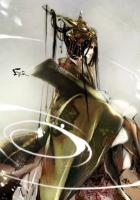What those notions are is well known. Very many of her Majesty's subjects are of opinion that the first half of the seventeenth century (if the Puritans had not interfered and spoilt all) was the most beautiful period of the English nation's life; that in it the chivalry and ardent piety of the Middle Age were happily combined with modern art and civilisation; that the Puritan hatred of the Court, of stage-plays, of the fashions of the time, was only 'a scrupulous and fantastical niceness'; barbaric and tasteless, if sincere; if insincere, the basest hypocrisy; that the stage-plays, though coarse, were no worse than Shakspeare, whom everybody reads; and that if the Stuarts patronised the stage they also raised it, and exercised a purifying censorship. And many more who do not go all these lengths with the reactionists, and cannot make up their mind to look to the Stuart reigns either for model churchmen or model courtiers, are still inclined to sneer at the Puritan 'preciseness,' and to say lazily, that though, of course, something may have been wrong, yet there was no need to make such a fuss about the matter; and that at all events the Puritans were men of very bad taste.
Mr. Gifford, in his introduction to Massinger's plays (1813), was probably the spokesman of his own generation, certainly of a great part of this generation also, when he informs us, that 'with Massinger terminated the triumph of dramatic poetry; indeed, the stage itself survived him but a short time. The nation was convulsed to its centre by contending factions, and a set of austere and gloomy fanatics, enemies to every elegant amusement and every social relaxation, rose upon the ruins of the State. Exasperated by the ridicule with which they had long been covered by the stage, they persecuted the actors with unrelenting severity, and consigned them, together with the writers, to hopeless obscurity and wretchedness.
Taylor died in the extreme of poverty, Shirley opened a little school at Brentford, and Downe, the boast of the stage, kept an ale-house at Brentford. Others, and those the far greater number, joined the royal standard, and exerted themselves with more gallantry than good fortune in the service of their old and indulgent master.'
'We have not yet, perhaps, fully estimated, and certainly not yet fully recovered, what was lost in that unfortunate struggle. The arts were rapidly advancing to perfection under the fostering wing of a monarch who united in himself taste to feel, spirit to undertake, and munificence to reward. Architecture, painting, and poetry were by turns the objects of his paternal care. Shakspeare was his "closet companion," Jonson his poet, and in conjunction with Inigo Jones, his favoured architect, produced those magnificent entertainments,' etc.
* * *
He then goes on to account for the supposed sudden fall of dramatic art at the Restoration, by the somewhat far-fetched theory that -'Such was the horror created in the general mind by the perverse and unsocial government from which they had so fortunately escaped, that the people appear to have anxiously avoided all retrospect, and, with Prynne and Vicars, to have lost sight of Shakspeare and "his fellows." Instead, therefore, of taking up dramatic poetry where it abruptly ceased in the labours of Massinger, they elicited, as it were, a manner of their own, or fetched it from the heavy monotony of their continental neighbours.'
So is history written, and, what is more, believed. The amount of misrepresentation in this passage (which would probably pass current with most readers in the present day) is quite ludicrous. In the first place, it will hardly be believed that these words occur in an essay which, after extolling Massinger as one of the greatest poets of his age, second, indeed, only to Shakspeare, also informs us (and, it seems, quite truly) that, so far from having been really appreciated or patronised, he maintained a constant struggle with adversity,--'that even the bounty of his particular friends, on which he chiefly relied, left him in a state of absolute dependence,'--that while 'other writers for the stage had their periods of good fortune, Massinger seems to have enjoyed no gleam of sunshine; his life was all one misty day, and "shadows, clouds, and darkness rested on it."'
So much for Charles's patronage of a really great poet. What sort of men he did patronise, practically and in earnest, we shall see hereafter, when we come to speak of Mr. Shirley.
But Mr. Gifford must needs give an instance to prove that Charles was 'not inattentive to the success of Massinger,' and a curious one it is; of the same class, unfortunately, as that with the man in the old story, who recorded with pride that the King had spoken to him, and-- had told him to get out of the way.
Massinger in his 'King and the Subject' had introduced Don Pedro of Spain thus speaking -
'Monies! We'll raise supplies which way we please, And force you to subscribe to blanks, in which We'll mulct you as we shall think fit. The Caesars In Rome were wise, acknowledging no law But what their swords did ratify, the wives And daughters of the senators bowing to Their will, as deities,' etc.
Against which passage Charles, reading over the play before he allowed of it, had written, 'This is too insolent, and not to be printed.' Too insolent it certainly was, considering the state of public matters in the year 1638. It would be interesting enough to analyse the reasons which made Charles dislike in the mouth of Pedro sentiments so very like his own; but we must proceed, only pointing out the way in which men, determined to repeat the traditional clap- trap about the Stuarts, are actually blind to the meaning of the very facts which they themselves quote.
Where, then, do the facts of history contradict Mr. Gifford?















